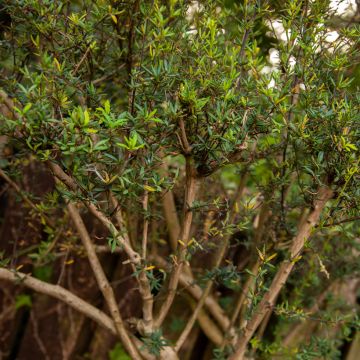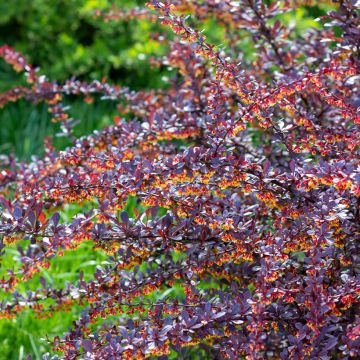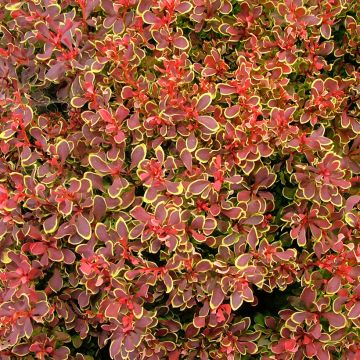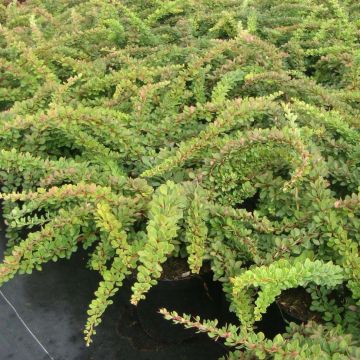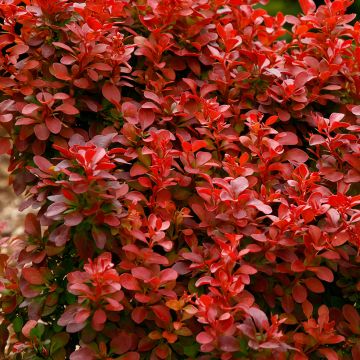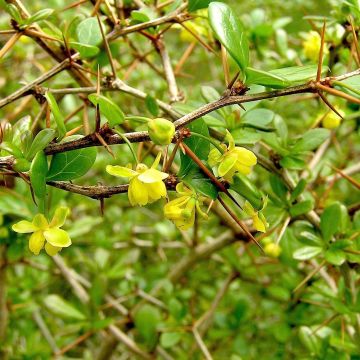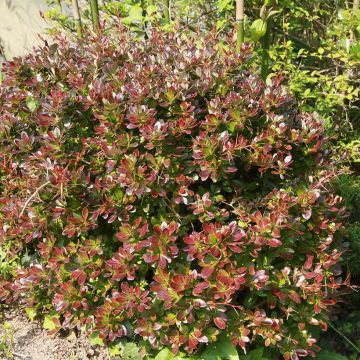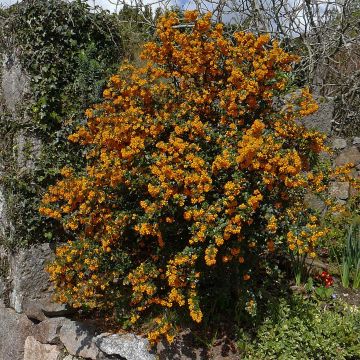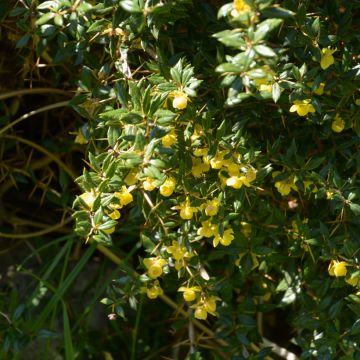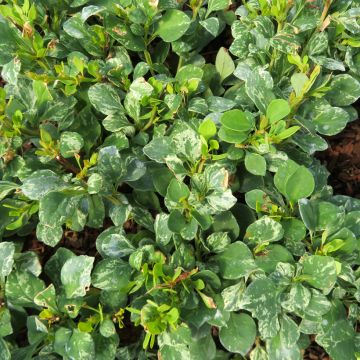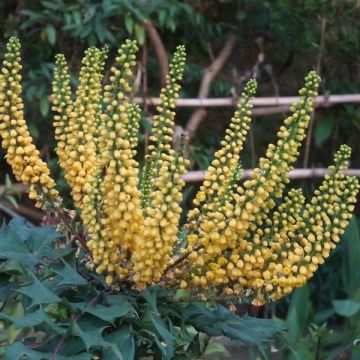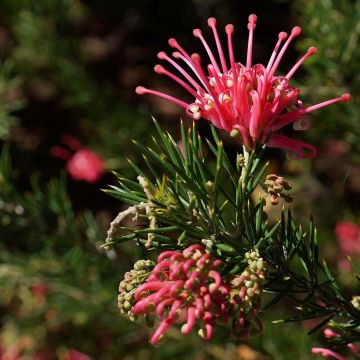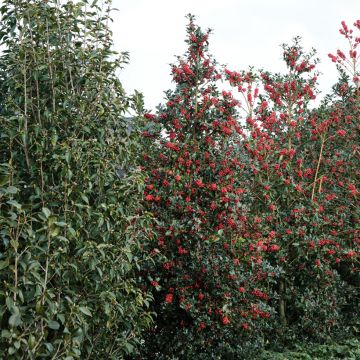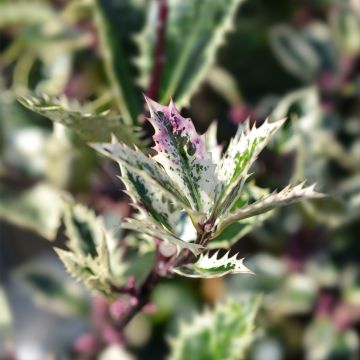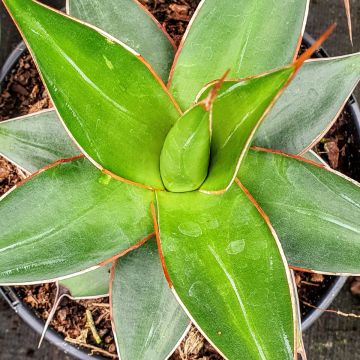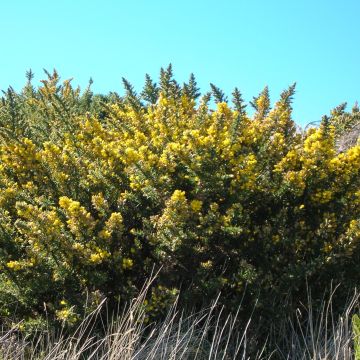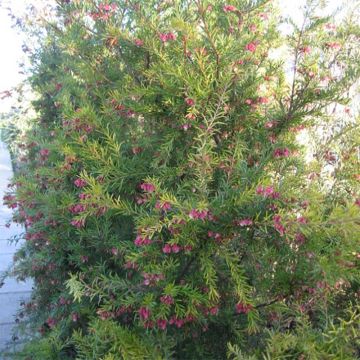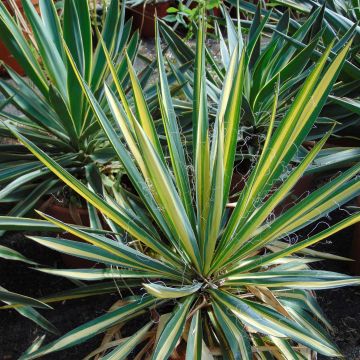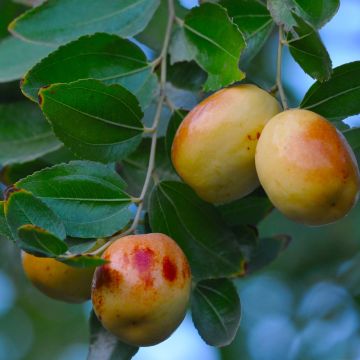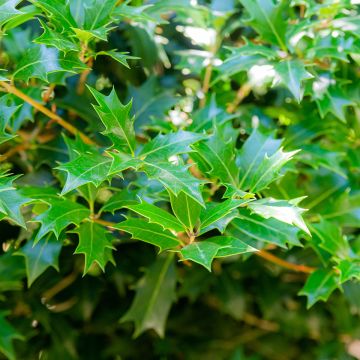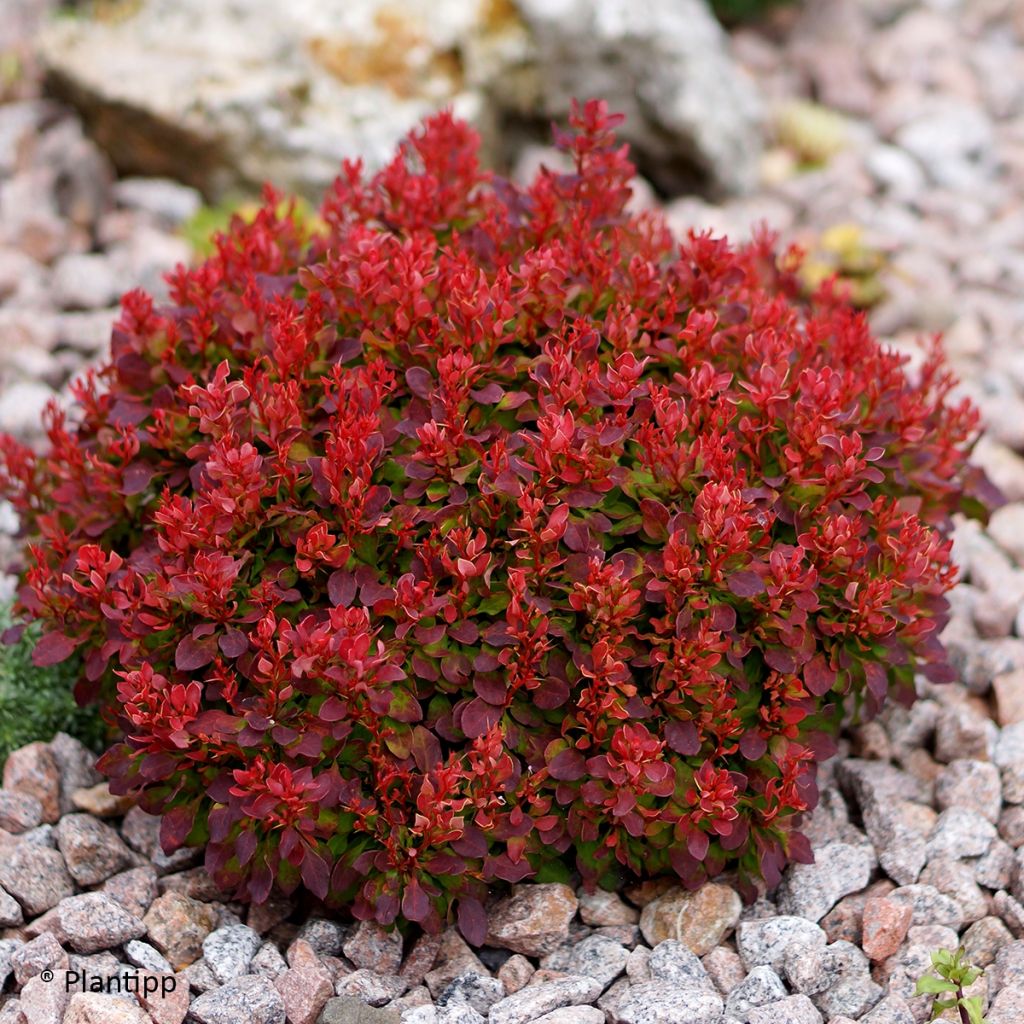

Berberis thunbergii Lutin Rouge - Barberry
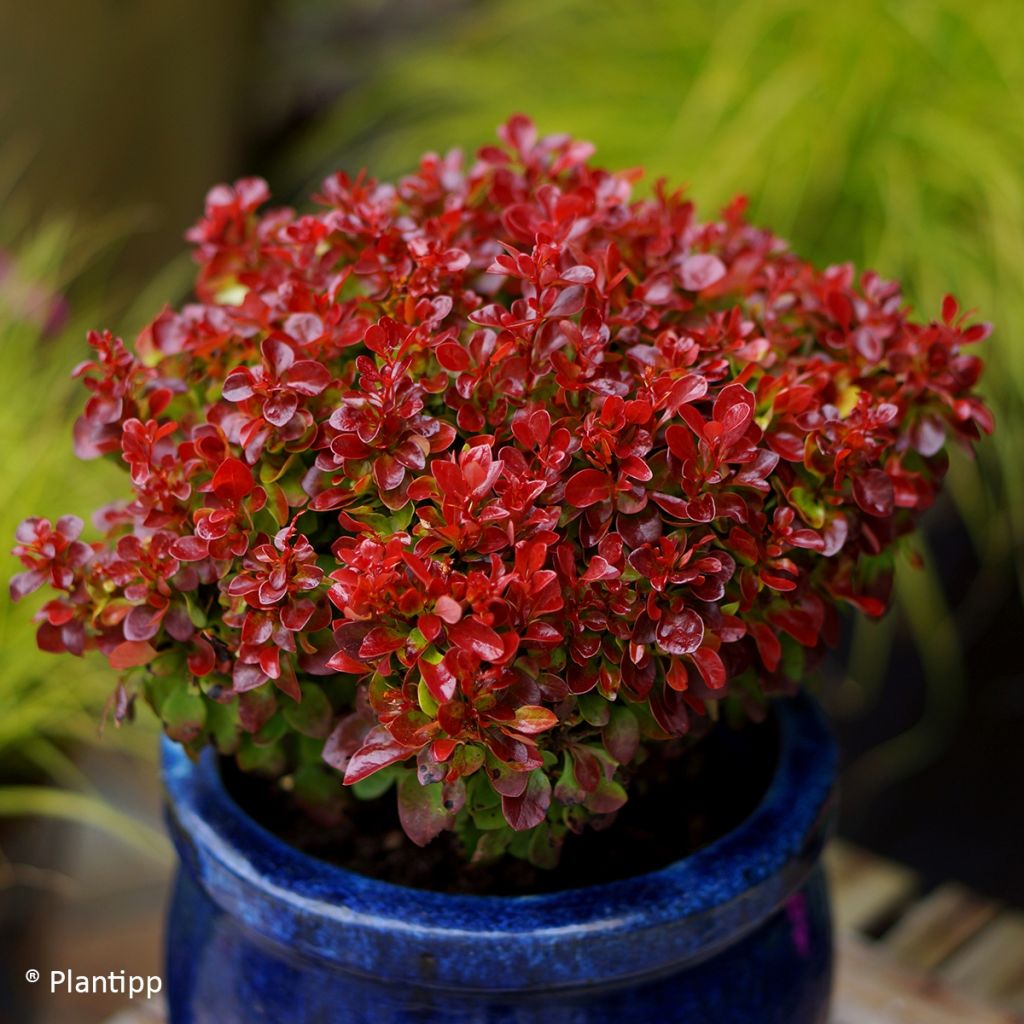

Berberis thunbergii Lutin Rouge - Barberry
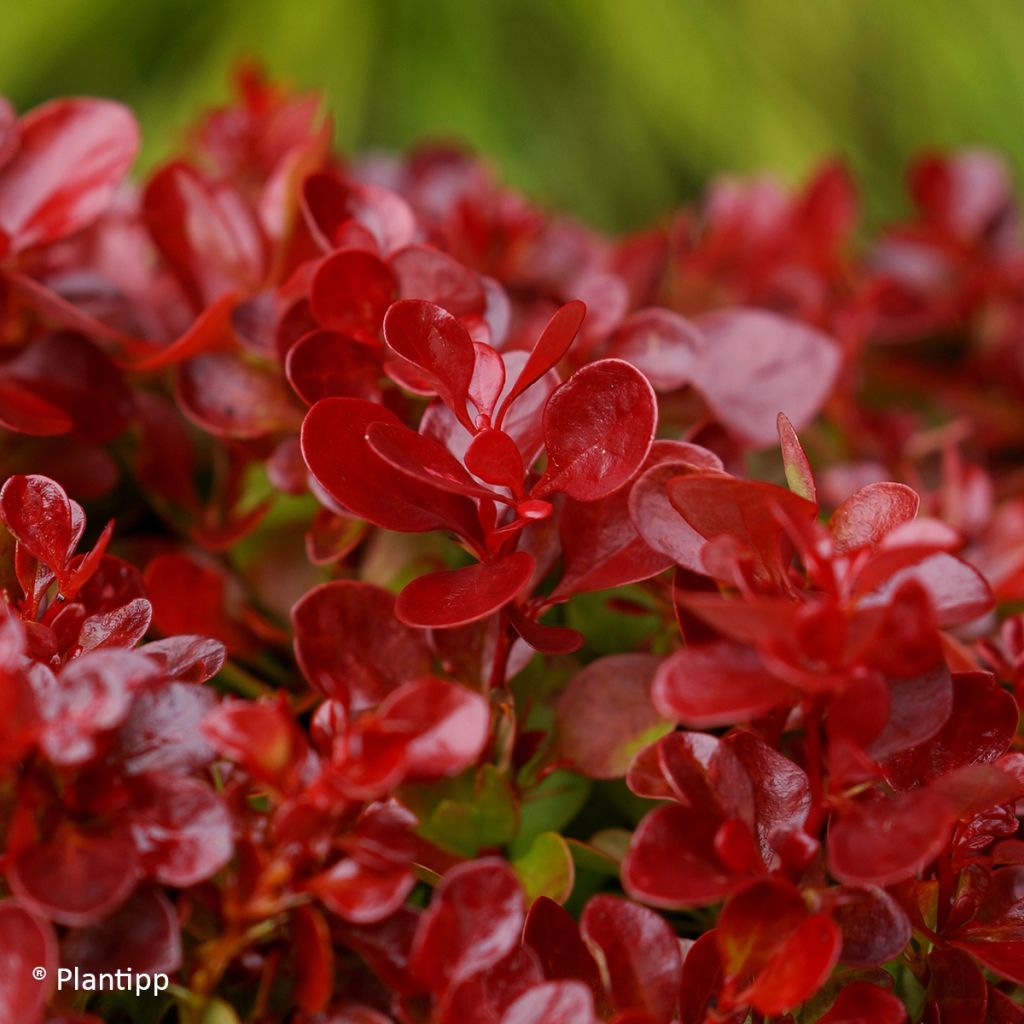

Berberis thunbergii Lutin Rouge - Barberry
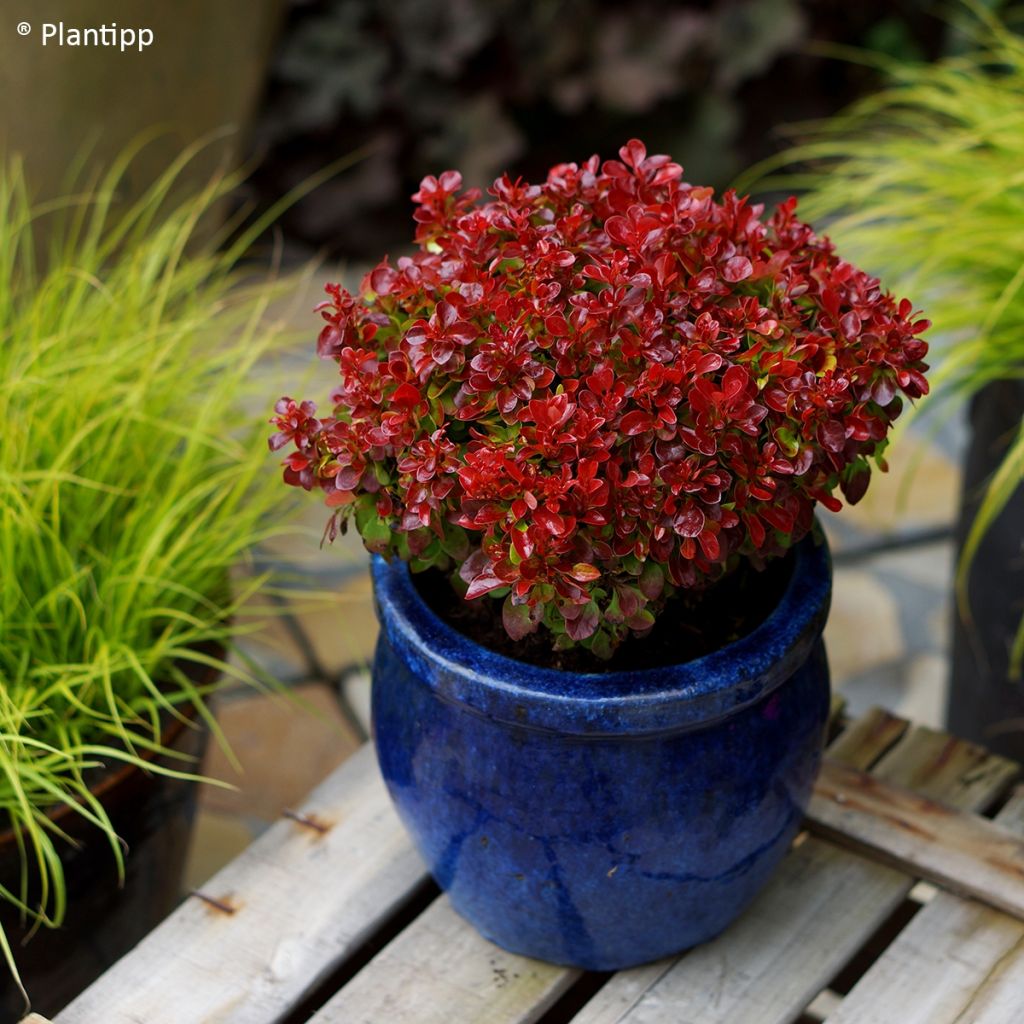

Berberis thunbergii Lutin Rouge - Barberry
Berberis thunbergii Lutin Rouge - Barberry
Berberis thunbergii Lutin Rouge®
Japanese Barberry
Very pretty little barberry that is doing well, I hope to see it bloom in 2025!
Catherine, 30/12/2024
This item cannot be shipped to the selected country
Delivery charge from €5.90
More information
Schedule delivery date,
and select date in basket
This plant carries a 24 months recovery warranty
More information
We guarantee the quality of our plants for a full growing cycle, and will replace at our expense any plant that fails to recover under normal climatic and planting conditions.
From €5.90 for pickup delivery and €6.90 for home delivery
Express home delivery from €8.90.

Does this plant fit my garden?
Set up your Plantfit profile →
Description
Berberis thunbergii 'Lutin Rouge' is a dwarf variety of Japanese barberry, distinguished by its compact rounded shape and foliage with changing colours from spring to autumn! In spring, the young shoots emerge in scarlet red before turning to deep purple red. In shade, the plant grows but its foliage will be more apple green and then dark green. It bears small yellow flowers in spring, followed by bright red fruits. Its reduced growth and dense habit make it ideal for ground cover or low colourful borders, or to accompany roses and perennials in a bed with pink, red, purple, and black tones. Hardy and resistant to temporary drought, it can be planted in full sun or bright partial shade in well-drained soil, even in rock gardens!
The Berberis thunbergii, also known as Japanese barberry, is a shrub from the Berberidaceae family originating from Japan. It is characterized by a bushy, spreading, and low habit, and deciduous foliage which is evergreen in mild climates.
The cultivar 'Lutin Rouge' is a creation by JP Hennebelle which quickly reaches 60cm (23.6in) in all directions. The branches range from beige to light brown and are semi-arching and semi-erect in this variety, with mildly aggressive thorns. The colourful foliage and dense ball-shaped habit are the main assets of this barberry. The leaves measure a few centimetres long and are glossy and obovate (ovate, with the upper part of the leaf wider than the lower part). When they emerge, they display a scarlet red colour, which gradually darkens to almost purple-red as they mature. In May-June, numerous clusters of 1 to 6 small flowers bloom on 1-year-old stems. The bell-shaped soft yellow flowers are 1cm (0.4in) long. They are highly nectar-rich and are followed in September-October by small, bright red spherical fruits measuring 6 to 8mm (0.2 - 0.3in), which persist on the branches for part of the winter. The foliage takes on a beautiful purplish-red hue before falling.
Japanese barberry is a very adaptable shrub in terms of soil, which tolerates pruning very well and prefers sunny exposures. It is a shame to confine it to the role of a monochrome and anonymous defensive hedge where its naturally graceful habit is completely overshadowed. Its beautiful foliage, particularly remarkable in certain cultivars like 'Lutin Rouge', deserves a prominent spot in front of larger flowering shrubs in shades of pink (Kolkwitzia, Abelia, Abeliophyllum distichum Roseum), red (Japanese quince, roses, Weigelas), or even yellow to orange (Kerria japonica, Genista Lena Orange, Lonicera Dropmore Scarlett). Its compact size and neat appearance make it suitable for decorative ground covers and low colourful borders. It can also be paired with the grey foliage of shrubby artemisias or Convolvulus cneorum. This shrub can also be planted in small rock gardens to cover slopes or highlight the edge of a pathway. It also thrives when grown in a pot to adorn a terrace or balcony.
Report an error about the product description
Berberis thunbergii Lutin Rouge - Barberry in pictures
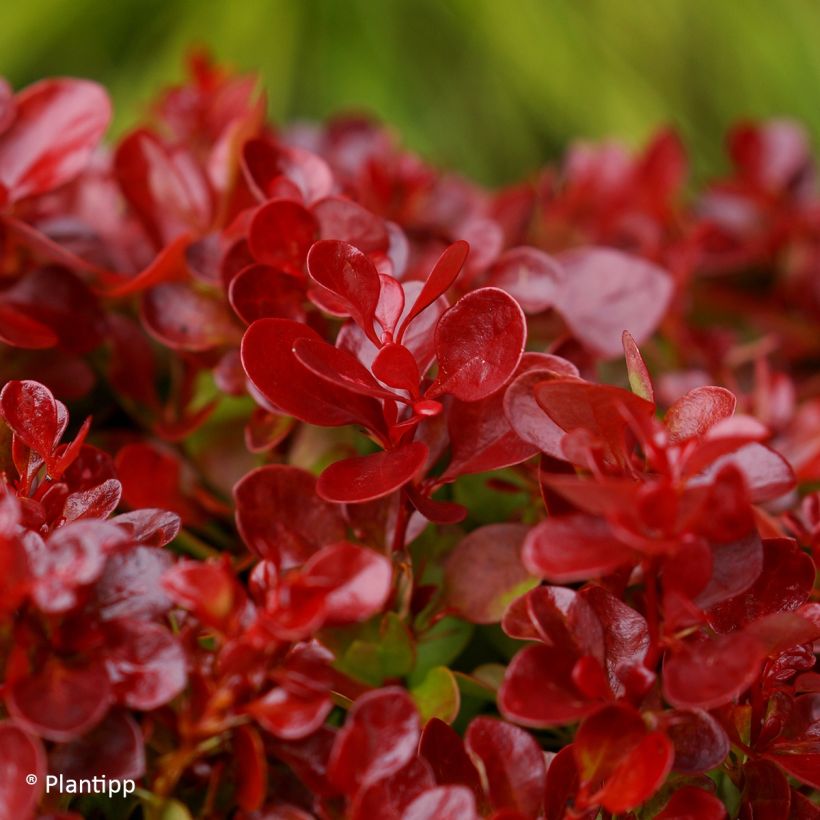

Plant habit
Flowering
Foliage
Botanical data
Berberis
thunbergii
Lutin Rouge®
Berberidaceae
Japanese Barberry
Cultivar or hybrid
Other Berberis - Barberries
Planting and care
Berberis thunbergii 'Lutin Rouge' thrives in full sun or partial shade, with autumn colours being more intense in the sun. It is a plant that tolerates drought and harsh winters. Plant it in any type of soil as long as it is well-drained. The planting hole should be twice the size of the root ball. Space Berberis bushes about 80cm (31.5in) apart, add compost and water well. It is a bush that tolerates pruning very well. From June to August, after flowering, cut back the faded branches to the level of the young lateral shoots to encourage the arrival of new branches. Be careful not to touch the branches with bare hands as they have thorns that are difficult to remove once they are stuck in the skin. Berberis thunbergii can be susceptible to powdery mildew and black leaf spots. Aphids can also invade it.
Planting period
Intended location
Care
-
, onOrder confirmed
Reply from on Promesse de fleurs
Thorny shrubs
Haven't found what you were looking for?
Hardiness is the lowest winter temperature a plant can endure without suffering serious damage or even dying. However, hardiness is affected by location (a sheltered area, such as a patio), protection (winter cover) and soil type (hardiness is improved by well-drained soil).

Photo Sharing Terms & Conditions
In order to encourage gardeners to interact and share their experiences, Promesse de fleurs offers various media enabling content to be uploaded onto its Site - in particular via the ‘Photo sharing’ module.
The User agrees to refrain from:
- Posting any content that is illegal, prejudicial, insulting, racist, inciteful to hatred, revisionist, contrary to public decency, that infringes on privacy or on the privacy rights of third parties, in particular the publicity rights of persons and goods, intellectual property rights, or the right to privacy.
- Submitting content on behalf of a third party;
- Impersonate the identity of a third party and/or publish any personal information about a third party;
In general, the User undertakes to refrain from any unethical behaviour.
All Content (in particular text, comments, files, images, photos, videos, creative works, etc.), which may be subject to property or intellectual property rights, image or other private rights, shall remain the property of the User, subject to the limited rights granted by the terms of the licence granted by Promesse de fleurs as stated below. Users are at liberty to publish or not to publish such Content on the Site, notably via the ‘Photo Sharing’ facility, and accept that this Content shall be made public and freely accessible, notably on the Internet.
Users further acknowledge, undertake to have ,and guarantee that they hold all necessary rights and permissions to publish such material on the Site, in particular with regard to the legislation in force pertaining to any privacy, property, intellectual property, image, or contractual rights, or rights of any other nature. By publishing such Content on the Site, Users acknowledge accepting full liability as publishers of the Content within the meaning of the law, and grant Promesse de fleurs, free of charge, an inclusive, worldwide licence for the said Content for the entire duration of its publication, including all reproduction, representation, up/downloading, displaying, performing, transmission, and storage rights.
Users also grant permission for their name to be linked to the Content and accept that this link may not always be made available.
By engaging in posting material, Users consent to their Content becoming automatically accessible on the Internet, in particular on other sites and/or blogs and/or web pages of the Promesse de fleurs site, including in particular social pages and the Promesse de fleurs catalogue.
Users may secure the removal of entrusted content free of charge by issuing a simple request via our contact form.
The flowering period indicated on our website applies to countries and regions located in USDA zone 8 (France, the United Kingdom, Ireland, the Netherlands, etc.)
It will vary according to where you live:
- In zones 9 to 10 (Italy, Spain, Greece, etc.), flowering will occur about 2 to 4 weeks earlier.
- In zones 6 to 7 (Germany, Poland, Slovenia, and lower mountainous regions), flowering will be delayed by 2 to 3 weeks.
- In zone 5 (Central Europe, Scandinavia), blooming will be delayed by 3 to 5 weeks.
In temperate climates, pruning of spring-flowering shrubs (forsythia, spireas, etc.) should be done just after flowering.
Pruning of summer-flowering shrubs (Indian Lilac, Perovskia, etc.) can be done in winter or spring.
In cold regions as well as with frost-sensitive plants, avoid pruning too early when severe frosts may still occur.
The planting period indicated on our website applies to countries and regions located in USDA zone 8 (France, United Kingdom, Ireland, Netherlands).
It will vary according to where you live:
- In Mediterranean zones (Marseille, Madrid, Milan, etc.), autumn and winter are the best planting periods.
- In continental zones (Strasbourg, Munich, Vienna, etc.), delay planting by 2 to 3 weeks in spring and bring it forward by 2 to 4 weeks in autumn.
- In mountainous regions (the Alps, Pyrenees, Carpathians, etc.), it is best to plant in late spring (May-June) or late summer (August-September).
The harvesting period indicated on our website applies to countries and regions in USDA zone 8 (France, England, Ireland, the Netherlands).
In colder areas (Scandinavia, Poland, Austria...) fruit and vegetable harvests are likely to be delayed by 3-4 weeks.
In warmer areas (Italy, Spain, Greece, etc.), harvesting will probably take place earlier, depending on weather conditions.
The sowing periods indicated on our website apply to countries and regions within USDA Zone 8 (France, UK, Ireland, Netherlands).
In colder areas (Scandinavia, Poland, Austria...), delay any outdoor sowing by 3-4 weeks, or sow under glass.
In warmer climes (Italy, Spain, Greece, etc.), bring outdoor sowing forward by a few weeks.

































